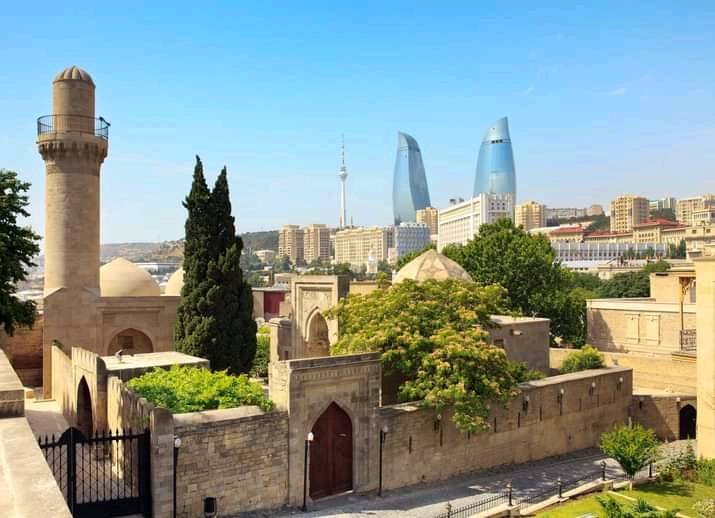The Name of Baku: Unraveling the Origins and Significance
Baku, the capital city of Azerbaijan, is a vibrant blend of history and modernity, a place where ancient traditions meet contemporary innovation. But have you ever wondered about the meaning and origin of its name? In this blog post, we will delve into the etymology of “Baku,” exploring its historical roots and the cultural significance it holds today.
The Etymology of Baku
The name “Baku” is believed to have originated from the Persian term “bad kube,” which means “wind-pounded.” This name is particularly fitting given the city’s coastal location along the Caspian Sea, where strong winds are a common occurrence. The name reflects the natural environment of Baku and highlights one of its defining characteristics.
Another theory suggests that the name may be derived from the Arabic word “bāku,” meaning “to be bent” or “to be broken,” possibly referring to the hilly landscape surrounding the city. This interpretation emphasizes Baku’s geographical features, which have played a significant role in its history and development.
Historical Context
Baku’s rich history stretches back to ancient times, with archaeological findings indicating that the area has been inhabited since at least the 1st century AD. As a crucial hub along the Silk Road, Baku has witnessed various cultural influences and conquests, shaping its identity over the centuries. The name itself has adapted and evolved, reflecting the city’s dynamic history.
Throughout its existence, Baku has been part of various empires, including the Persian, Arab, and Ottoman empires. Each of these periods has left an imprint on the city’s culture, architecture, and, of course, its name. The etymology of Baku serves as a reminder of its diverse heritage and the many peoples who have contributed to its rich tapestry.
Cultural Significance
The name “Baku” is not just a label; it embodies the spirit and identity of the city. It symbolizes resilience, as the city has withstood numerous historical challenges while continuing to thrive. Today, Baku is a symbol of Azerbaijan’s modern aspirations, with its stunning architecture and vibrant cultural scene.
Baku’s name is also intertwined with its cultural practices. The city is known for its traditional music, dance, and cuisine, all of which reflect the diverse influences that have shaped its identity. From the ancient Mugham music to contemporary art exhibitions, the name Baku resonates with creativity and cultural expression.
Modern Interpretations
In contemporary times, Baku has transformed into a modern metropolis, known for its innovative architecture and thriving economy. The Flame Towers, a symbol of the city, rise majestically against the skyline, representing Azerbaijan’s progress and ambition. The name “Baku” now evokes images of a city that is not only rooted in history but also looking toward the future.
Baku has become a hub for international events, attracting visitors from all over the world. Its name is synonymous with hospitality, innovation, and cultural exchange, making it a key player on the global stage.
Conclusion
The name “Baku” carries a rich history and deep significance, reflecting the city’s natural environment, cultural heritage, and modern aspirations. From its etymological roots in Persian and Arabic to its contemporary representation of resilience and creativity, Baku is more than just a name; it is a symbol of a city that has withstood the test of time.
As you explore Baku, remember that every corner of the city whispers stories of its past, and the name itself embodies the spirit of its people. Whether you are drawn to its ancient sites or modern attractions, Baku invites you to discover its multifaceted identity.
